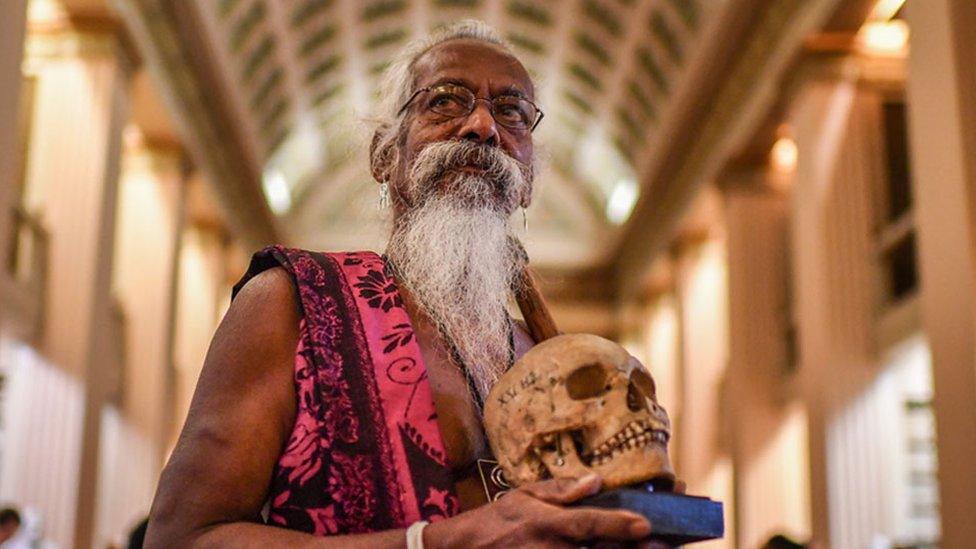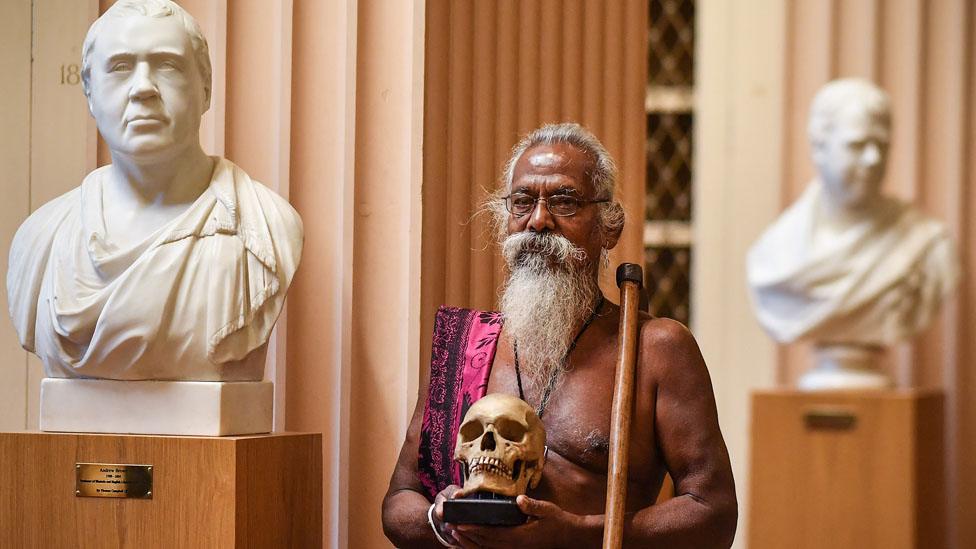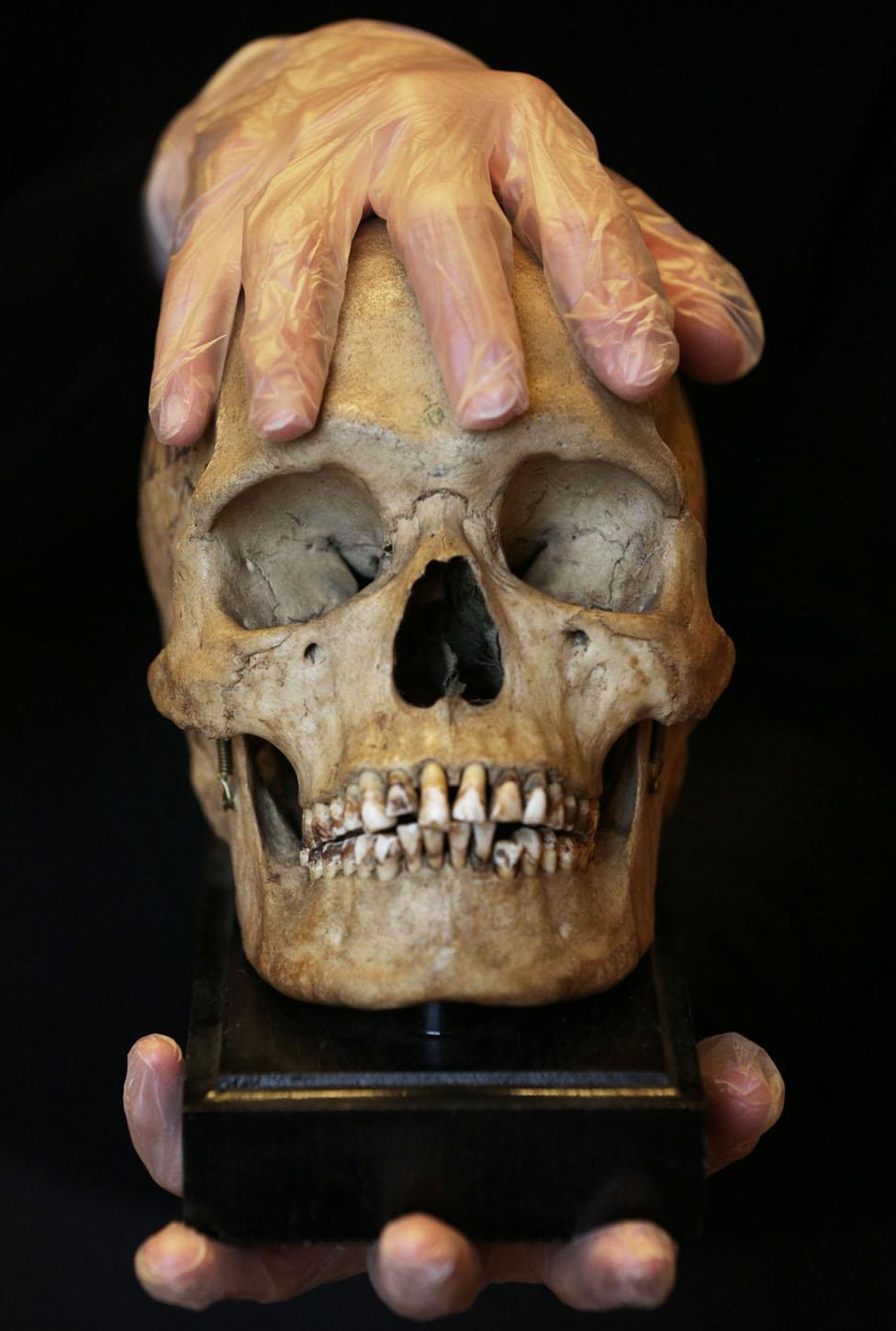University of Edinburgh returns nine skulls to Sri Lankan tribe
- Published

Vedda chief Wanniya Uruwarige was presented with the skulls at a ceremony in Edinburgh
The skulls of nine members of a Sri Lankan tribe have been returned to their descendents by the University of Edinburgh.
Experts say the bones are the ancestral remains of the Vedda people and may be more than 200 years old.
They have been part of the university's anatomical collection since being acquired at least a century ago.
The skulls were presented to Vedda chief Wanniya Uruwarige at a ceremony in the university's Playfair library.
"The dead are very important in Vedda society," he said. "Every year we hold a special ceremony to honour those who are no longer with us.

"Even though these remains have been in Edinburgh for many years, their spirits have remained with us in Sri Lanka.
"This reuniting of spirits and physical remains - for which I thank the university - is a very special moment for my people."
It is unclear how the skulls came to be part of the university's collection, which consists of more than 12,000 objects.

A study of the skulls by researchers in Germany and Edinburgh confirmed the Vedda's claim as Sri Lanka's earlier inhabitants.
They also showed that the tribe previously lived as isolated tropical rainforest foragers.
When the university offered to return the skulls to the Vedda people, they accepted.
They now plan to display the skulls in a collection showcasing their history as traditional hunter-gatherers and forest-dwellers.
Researchers suggest the tribe's traditional way of life could be extinct within two generations, due to the effects of land loss and civil war.
Prof Tom Gillingwater, the university's chairman of anatomy said he was delighted to welcome the Vedda people to Edinburgh.
"Our vast and diverse collection is often used in research breakthroughs and teaching," he said.
"We are pleased to be able to return these culturally-important artefacts to help ensure the Vedda's legacy endures for generations to come."